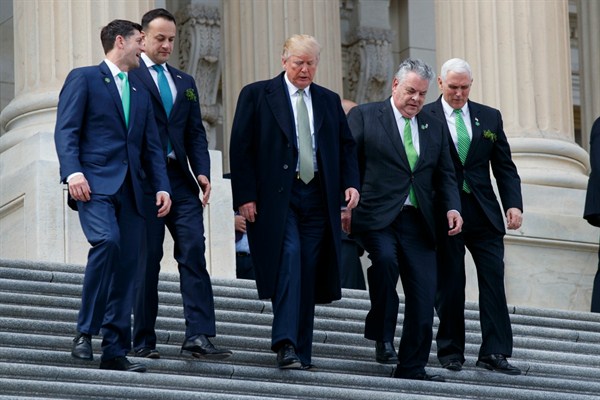For more than 70 years after World War II, U.S. foreign and national security policy followed a distinctive pattern. Despite many policy differences between Republicans and Democrats, there was also deep agreement about the overall goal and logic of U.S. strategy. Across the political spectrum, most political leaders and opinion-shapers believed that preserving the global order by cultivating and working with allies and partners was the best way to advance U.S. national interests. And they agreed that this should be done by a cadre of foreign and national security policy experts who moved in and out of government service, guided by elected leaders who had themselves developed expertise in the complexities of world affairs and statecraft. Influence was something to be earned over time through effort and paying one’s dues. As much as possible, bipartisanship was to form the foundation of statecraft.
But this has not been President Donald Trump’s way. While his published National Security Strategy reflects tradition and emphasizes the importance of America’s strategic partnerships, old and new, Trump has done less to cultivate them than any American president since the 1920s. Policy expertise and bipartisanship are treated as unimportant, if not scorned altogether. Instead of the usual emphasis on maintaining international stability and the international system, often with a carefully calibrated blend of carrots and sticks, Trump has focused on narrow and divisive issues like immigration and trade balances. His strategy is to punish or threaten America’s second-tier adversaries—Iran, North Korea and the self-styled Islamic State—while ignoring assertiveness or outright aggression from hostile great powers.
Is this an anomaly, or the new normal? Many commentators assume Trump is the former, stumbling into the presidency only because of the deep flaws among the opponents he faced in the Republican primaries and later in the 2016 general election. After he leaves office, according to this line of thought, things will go back to the way they were.

